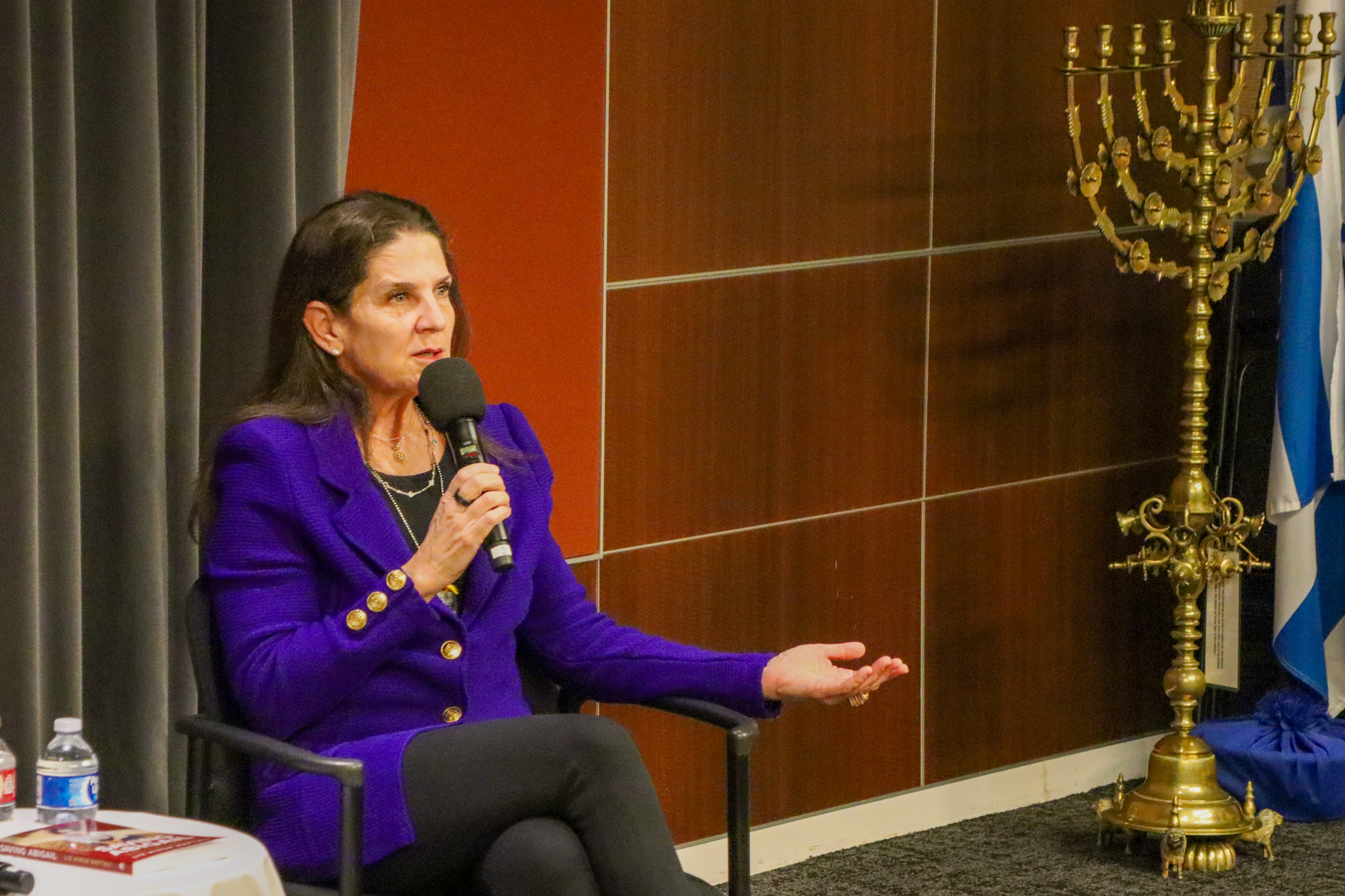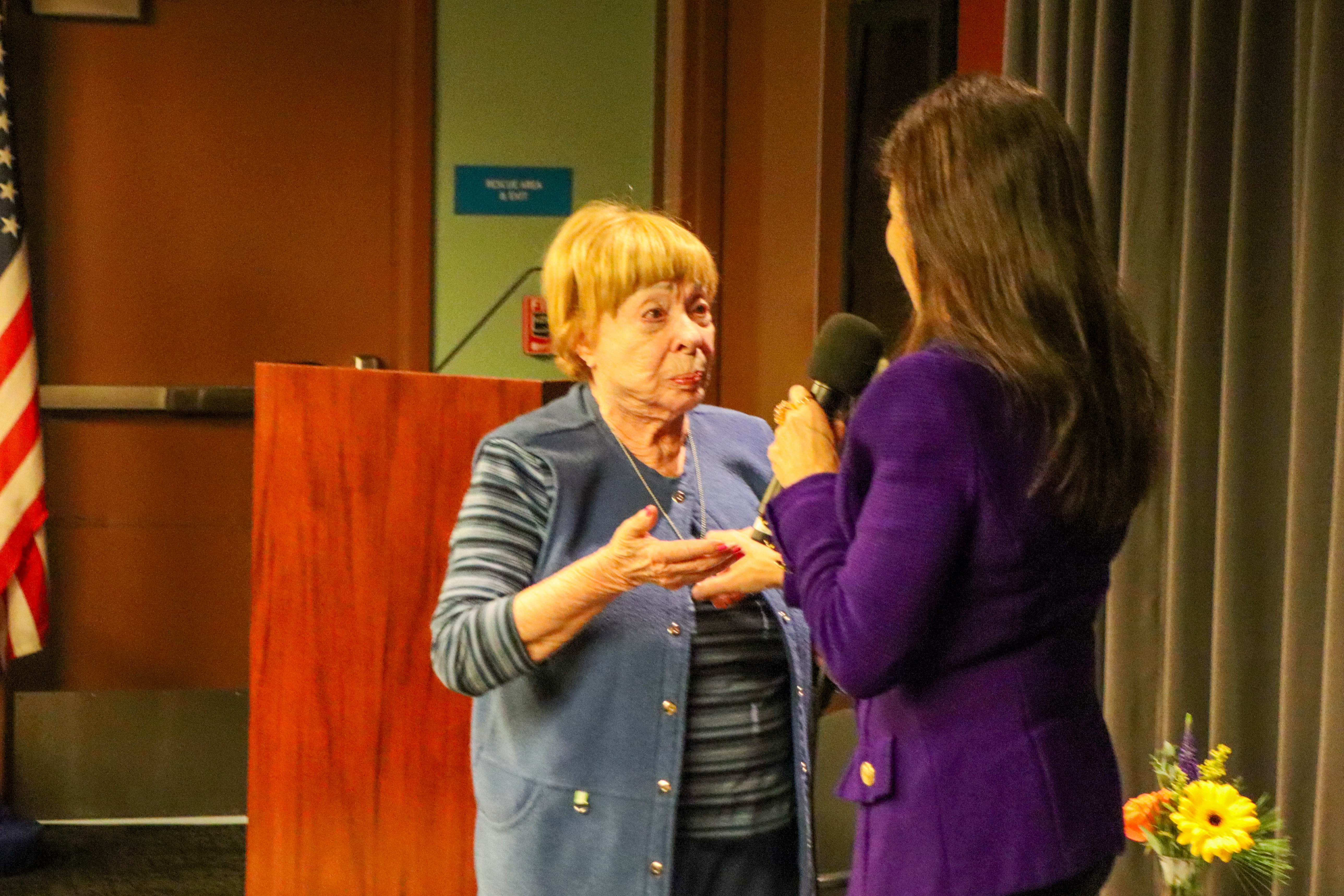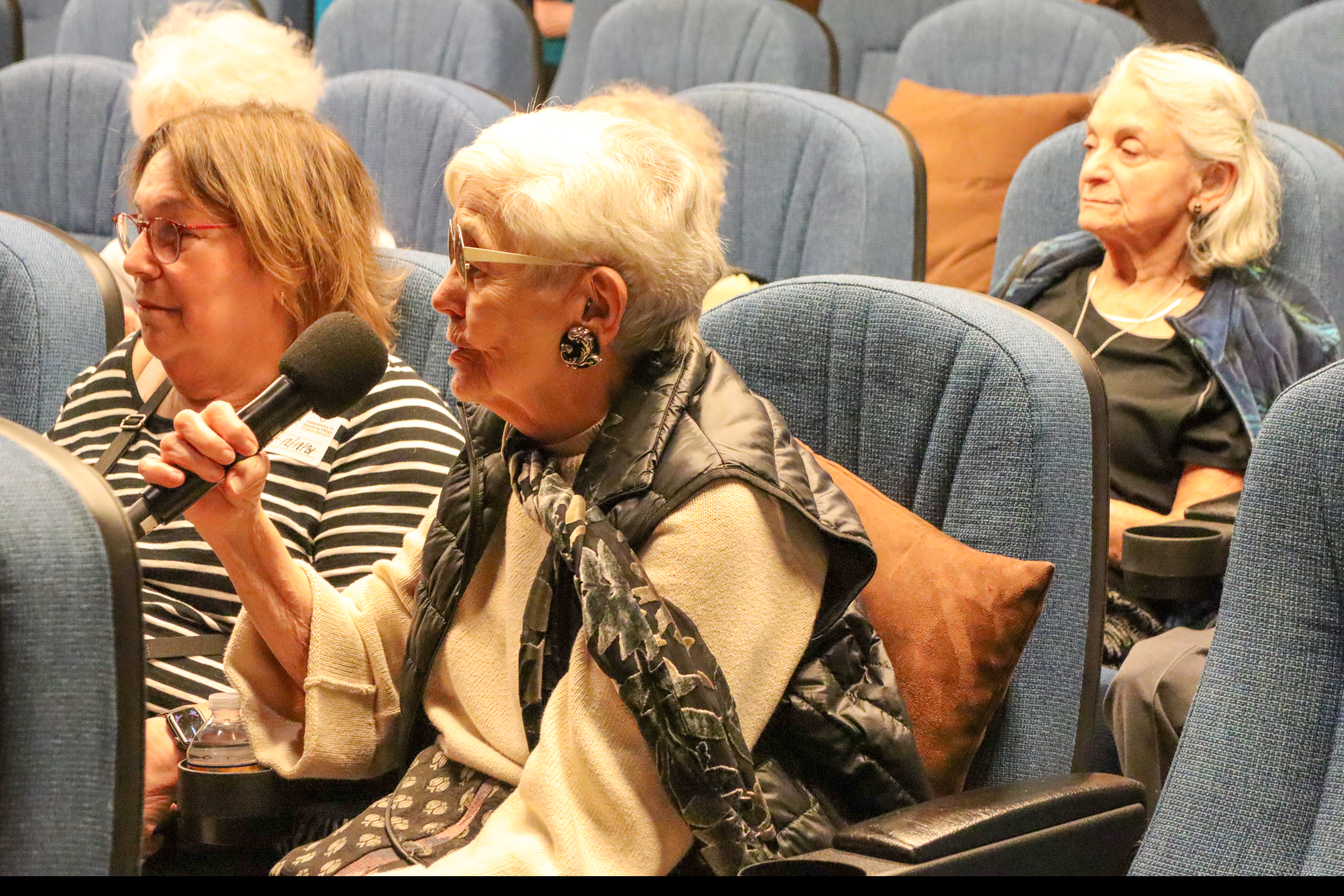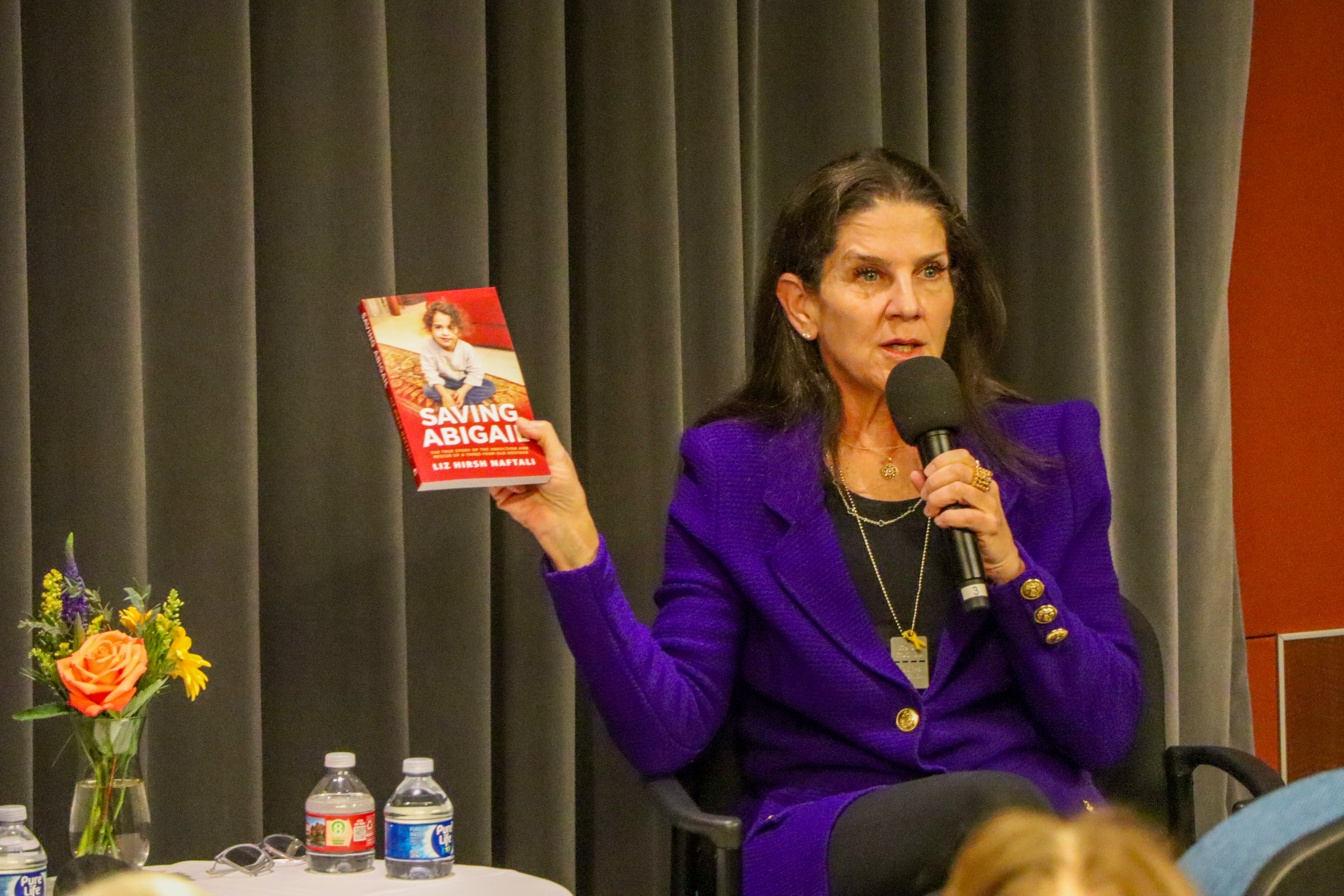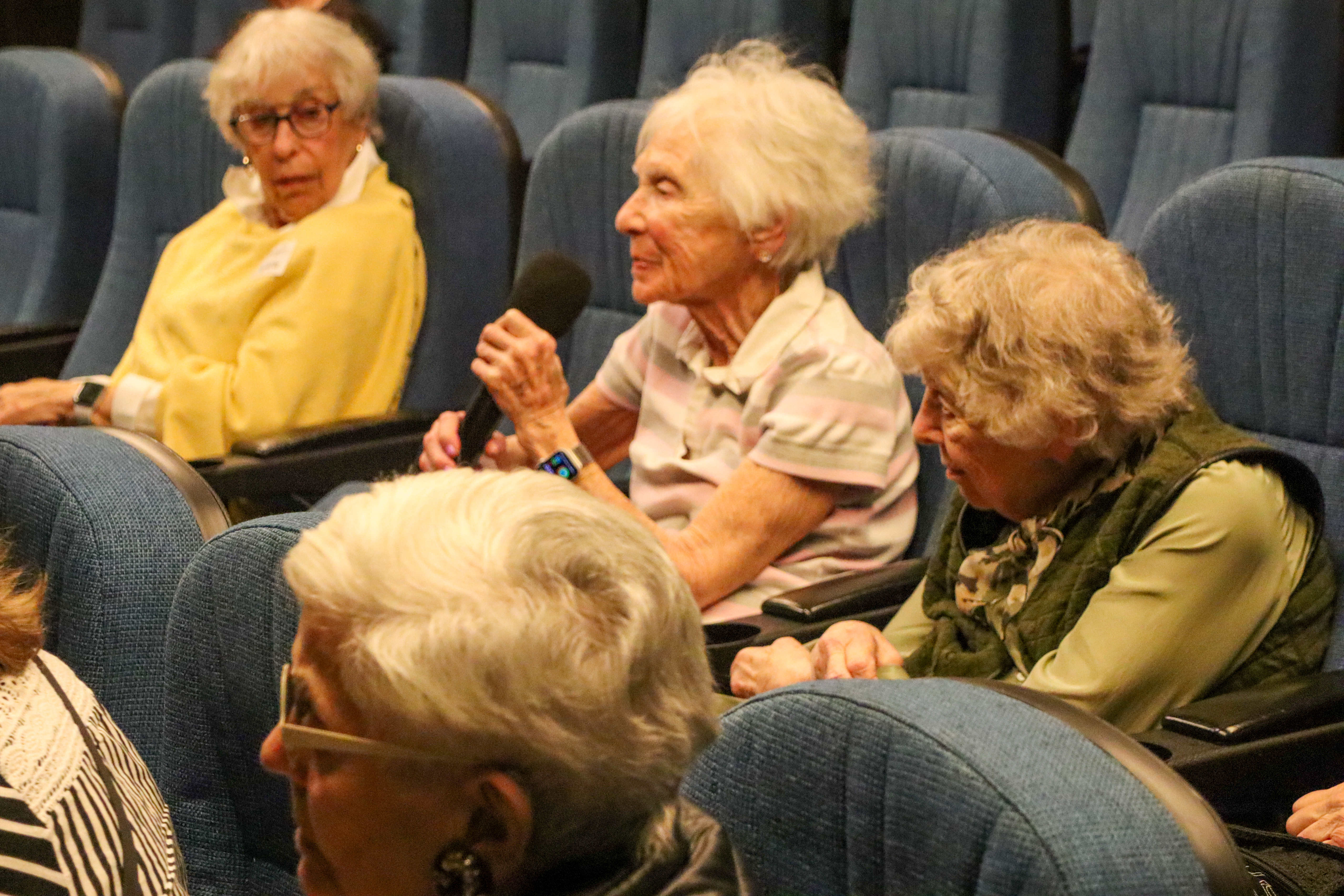Author Visits LAJH to Share Story of the Rescue of Her Niece and Advocate for Hostages


Author Visits LAJH to Share Story of the Rescue of Her Niece and Advocate for Hostages
Since October 7, 2023, Jews around the world have been on tenterhooks waiting for news of the hostages taken captive during Hamas’ brazen attack of Israel. The worry and concern have been constant companions of many Los Angeles Jewish Health (LAJH) residents, as well. In December, they gathered in the theater at Fountainview at Eisenberg Village to hear prominent podcaster, political influencer, and philanthropist Liz Hirsh Naftali, who spoke about her role in securing the release of her great niece Abigail and about her continued commitment to freeing the hostages who have still been left behind.
Liz, a lifelong Angeleno with deep roots in Israel, recounted arriving in Israel to celebrate the holiday of Simchat Torah on October 6, 2023. After an evening of dancing and celebration, she was awakened the next morning to the sound of alarms blaring: Hamas had breached the Israeli-Gaza border.
“I have family who lived along the border, in Kibbutz Kfar Aza,” she told the crowd of LAJH residents and members of SAYVA (a collaborative network focused on community, positive aging, and wisdom) in attendance at the event. “I called my sister-in-law that morning and discovered that my niece and nephew had been murdered by terrorists there—and that their three-year-old daughter, Abigail, had been kidnapped.”
A long history of activism equipped Liz for what came next: returning to the United States and sharing Abigail’s story as widely as possible with media outlets and political leaders on Capitol Hill.
“I met with Democrats and Republicans; I believe hostages should be apolitical, and we received incredibly beautiful support from people on both sides of the aisle,” said Liz, the host of The Capitol Coffee Connection podcast. “I was driven to keep talking to people and refused to take ‘no’ for an answer because when you’re in a situation like this, and someone you love is being held against their will, you cannot rest or even take a breath until you see their face again.”
Liz’s efforts ultimately contributed to a deal being struck: After 51 days in captivity, Abigail was freed along with 104 other hostages during a truce between Israel and Hamas.
Inspired to preserve a record of Abigail’s story, Liz wrote Saving Abigail: The True Story of the Abduction and Rescue of a Three-Year-Old Hostage, a book about the rescue efforts.
“As humans, we need to elevate these stories—to tell the truth about October 7 so people can start to heal,” she said. “I also wrote this book so people would understand they have the power to influence events. There are still hostages who haven’t been able to come home, and people might feel like nothing they do can have any impact, but my experience shows that’s not true. I think we can each play a role, in our own ways, in bringing the rest of the hostages back, stopping the fighting, and allowing Israelis and Palestinians to live in peace.”
